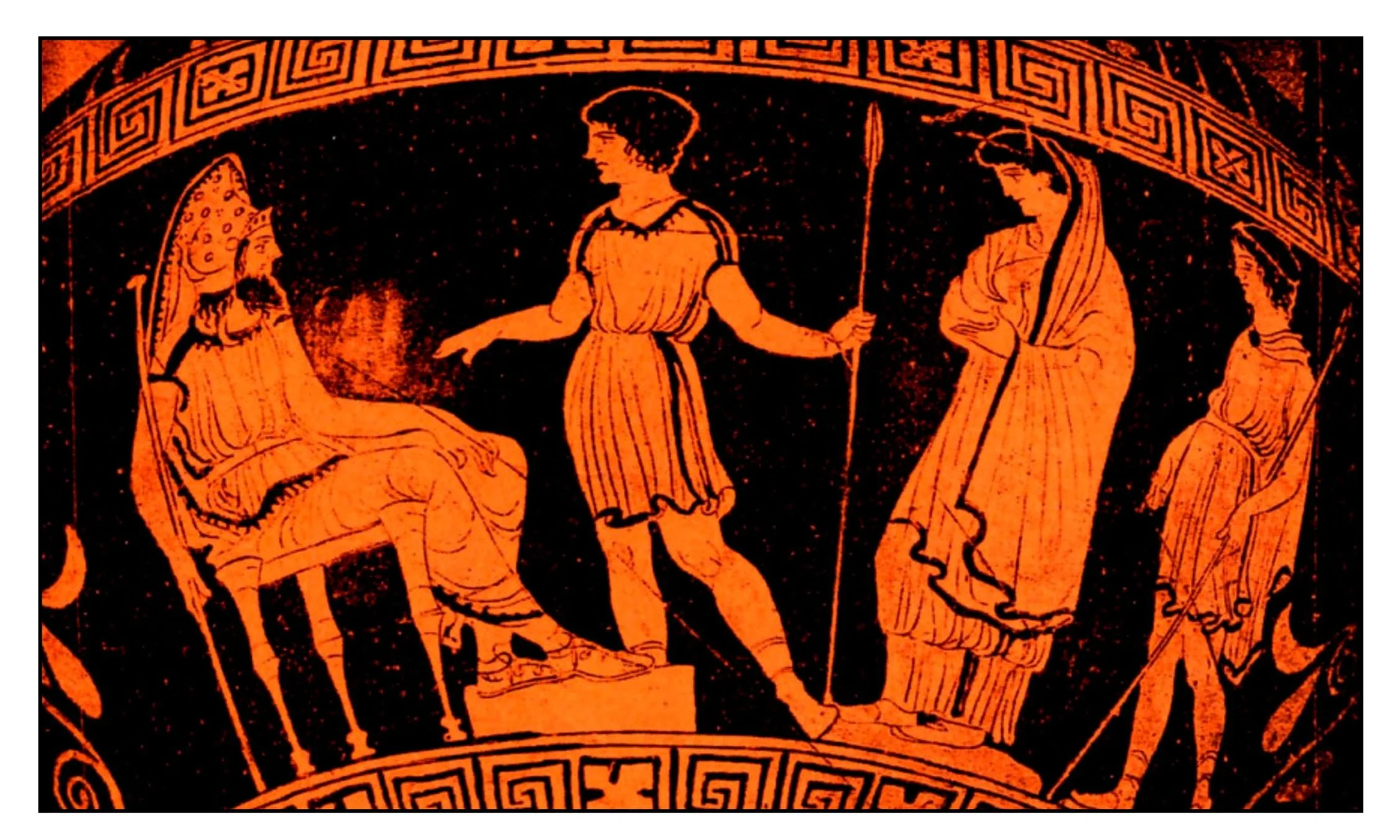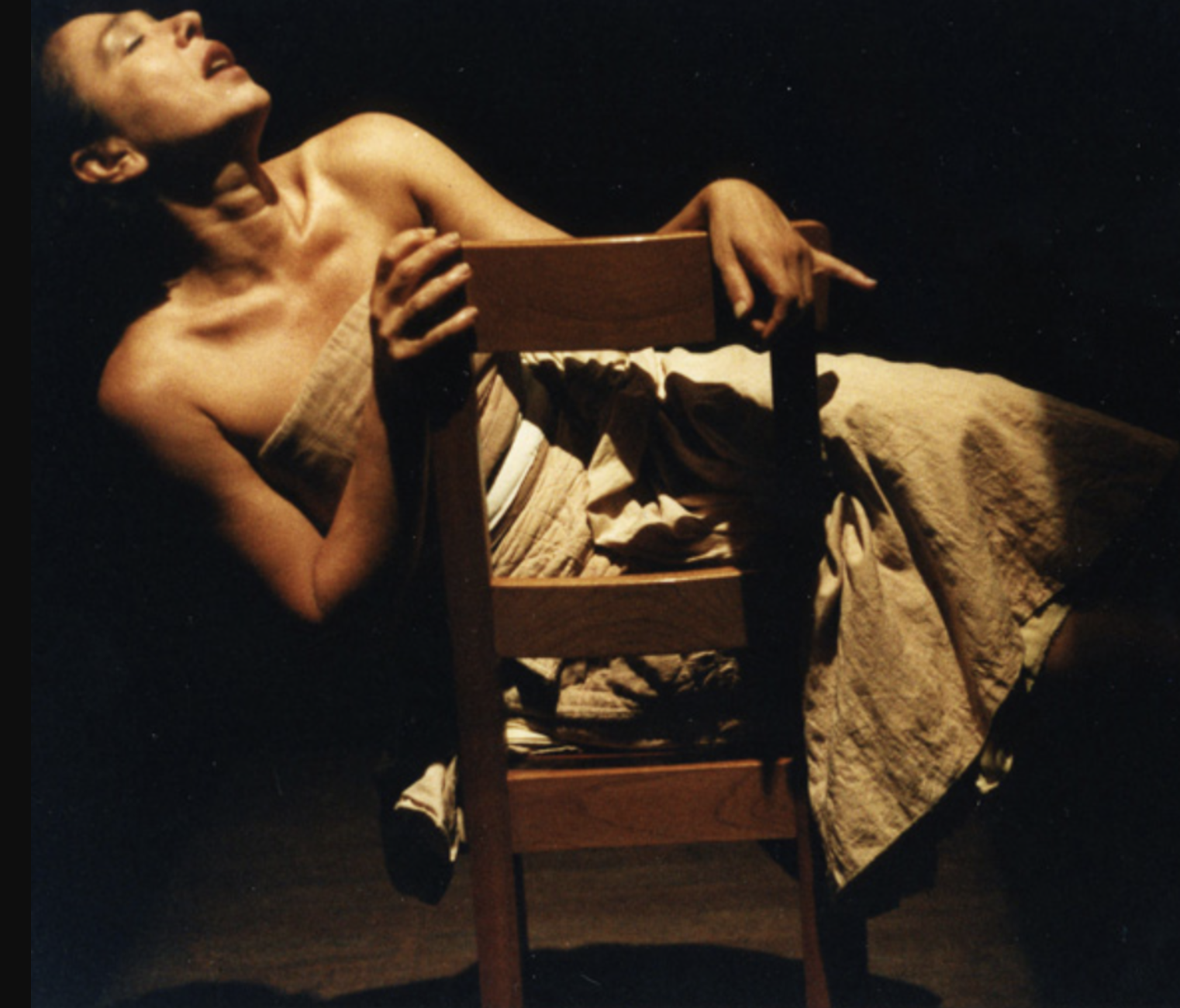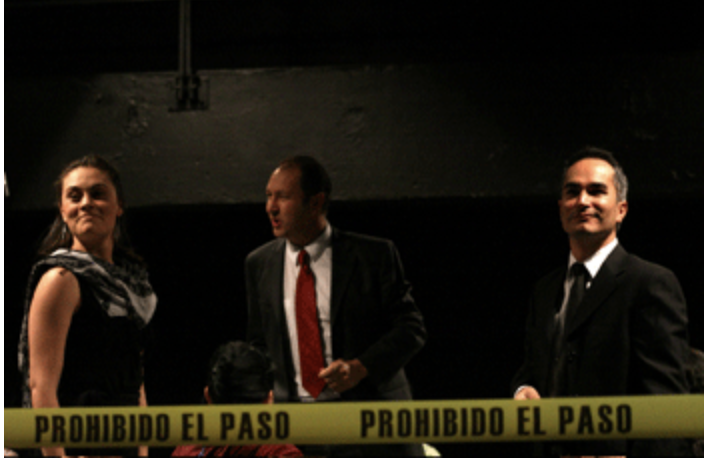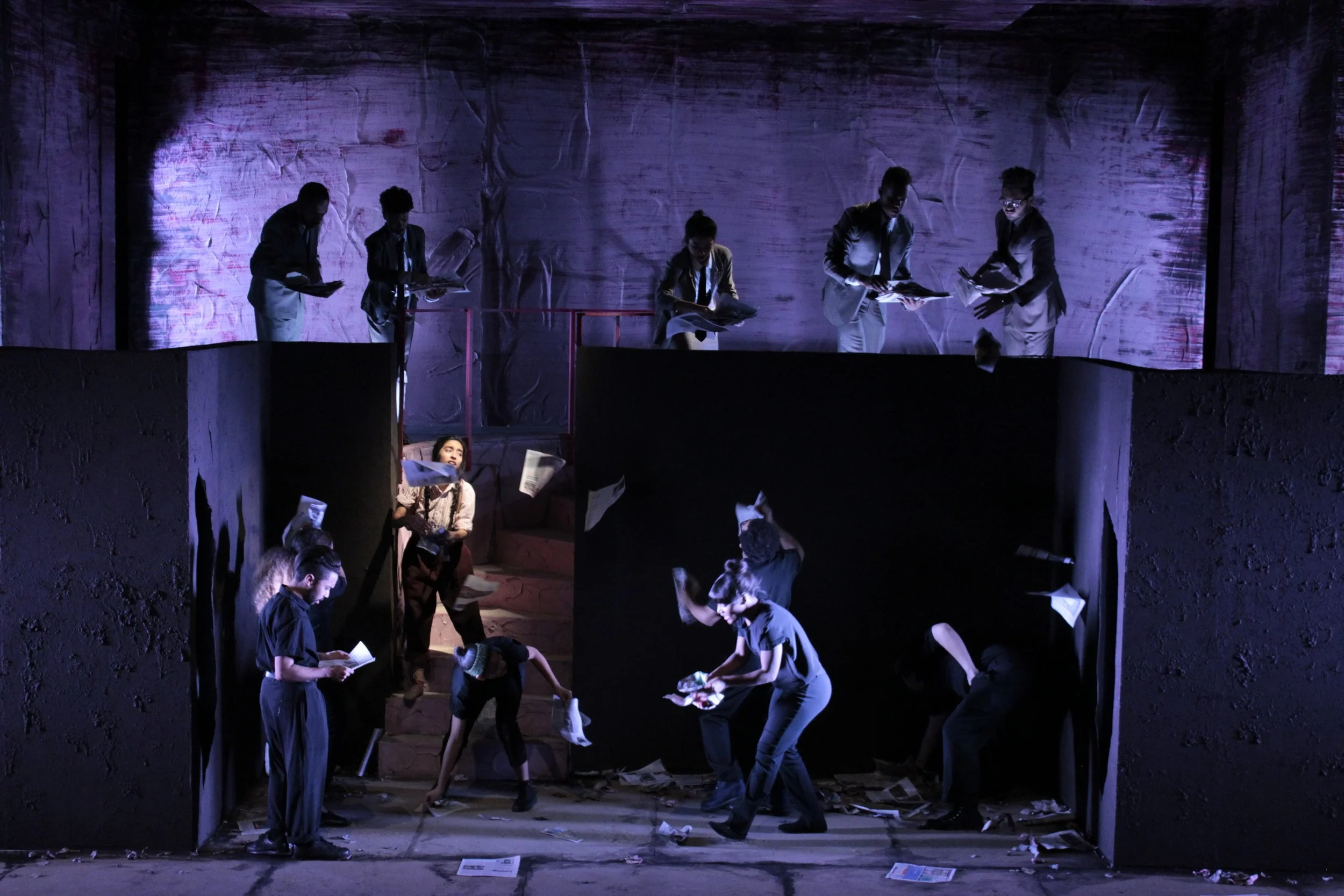A Scholar’s Essay on Antigone and Democracy
Dictatorship and the Dissenting Maiden: Latin American Antigones
Rosa Andújar
In this essay, Professor Rosa Andújar places Sophocles’ ancient play in the context of modern performances of Antigone in Latin America that have been used to highlight political and social causes. Here Professor Andújar widens the concept of Democracy in America and also allows us to draw analogies with how Antigone speaks to American life today.
Dictatorship and the Dissenting Maiden: Latin American Antigones
Centred around the opposition between the welfare of the city and one’s duty to the family, Sophocles’ Antigone raises key questions about individual defiance and adherence to the law as well as the pressures of political leadership under trying circumstances. Unlike other surviving plays by Sophocles, which are typically centred around a single main character around whom the tragedy unfolds, Antigone features two protagonists, who appear to embody contrasting allegiances to the family (oikos) and the state (polis). Many readings and interpretations of this ancient play have as a result emphasized Antigone as a figure who utilizes the burial of her brother as a way of resisting civic authority, and Creon as an inflexible ruler whose very obstinacy leads to his and his family’s downfall.
Modern adaptations have further amplified the perceived clash between these two characters, in particular emphasizing themes of oppression and resistance. In Latin America, a region marred by political and civil violence, Antigone has offered playwrights and artists a convenient vehicle through which to relate the story of twentieth century state dictatorship. These plays tend to stage Antigone’s defiance in the face of authoritarian or military oppression, always represented by Creon. Whereas many have studied the way in which both the play and its female protagonist have been mobilized in modernity to challenge oppressive governments – thus representing the fight for freedom (and by extension, democracy) – this essay explores the play’s modern connection with autocracy and authoritarianism as embodied in Creon, who is transformed in these adaptations into a power-hungry dictator who suppresses the will of the people. Though recasting Sophocles’ Antigone into a political tale of dissent and resistance is not unique to Latin America – after all there have been Greek, Portuguese, and Turkish versions of Antigone which likewise use the play to reflect on specific twentieth-century dictatorships in those contexts – what is rather fascinating is their sheer number. Since the 1950s there have been so many theatrical adaptations of Sophocles’ play across the region that scholar Rómulo Pianacci has dubbed the play “a Latin American tragedy” (una tragedia latinoamericana).
Why have so many Latin American playwrights and artists reimagined the Theban ruler as a dictator? Some answers can be found in Sophocles’ complex presentation of Creon, who is both the patriarch of the family and the ruler of the city. The ancient play’s first scene illustrates the way Creon carefully presents himself as the city’s ruler, despite his familial connections. Among his first acts as ruler was an edict that forbade the burial of Polyneices, his nephew, to establish order in the city in the aftermath of civil war. In his first appearance, he defends his decree, namely by arguing that loyalty to the state takes priority over the interests of the individual. In his first speech (162-210), which is delivered to the chorus, he draws attention to the manner in which he has steered the city (polis)— poetically compared to a ship that has survived a storm — into the harbor of peace and stability. Creon here casts himself as a devoted champion of the city, making clear that in his view, the welfare of the city is paramount, and in fact is more important than friendship and kinship.
It is important to note that Creon’s ideas regarding the importance of the city’s welfare, which in his view is above intimate and personal relationships, are initially endorsed by the chorus, who represent citizens of Thebes. Following his first speech, the chorus affirm that, as the city’s new ruler, Creon can pass any law concerning both the dead and the living (213-4). From a historical perspective, Creon’s decree is in no way problematic. His edict is in fact in keeping with an Athenian law — referred to by Thucydides (1.138.6), Xenophon (Hellenica 1.7.22), and Plato (Laws 873b-c) — which forbade the burial of polluted bodies (such as those of traitors, temple robbers, and other types of criminals) within the borders of the city. Furthermore, Creon’s claim that the public interest takes precedence over personal interests is echoed in a speech that Pericles, Sophocles’ contemporary popular statesman, apparently delivered to the Athenian assembly in 430 BCE, some years after the first performance of Antigone. In that speech (Thucydides 2.60), Pericles argues that the state is the foundation for all the benefits that its citizens enjoy and therefore far more important that any individual. In fact, Antigone’s reference to Creon as a “general” (stratēgos, 8) has led some scholars to draw parallels between Sophocles’ character and Pericles. This characterization of general, as we shall see below, resonated rather differently in twentieth century Latin America.
As play unfolds, however, Creon appears to change, equating himself with the city and valuing his own opinion as ruler over that of his citizens. When his son Haemon informs him that the citizens of Thebes — although they will not dare speak out — disapprove of his decree and have started to see Antigone’s desire to bury her brother with sympathy (683-723), Creon responds with a revealing question: “So, will the city tell me how I must rule?” (734). When Haemon points out that there is no city which belongs to a single man (737), Creon immediately counters with the belief that the state is an extension of the ruler, as he asks, “Isn’t the city considered the possession of its ruler?” (738). These comments reveal Creon’s tyrannical inclinations. Ironically, in his opening speech (175-7) Creon had argued that a man’s true character, thought, and judgement cannot be known until he proves himself through the test of rule and law giving. Creon’s exchange with Haemon now reveals him to be a despot who is determined to retain power while growing deaf to advice, countering his initial claim in the first scene that a good patriot cannot remain silent when he sees destruction march against his country (185-6). At the end of the play, he reconsiders his original positions. Faced with the corpses of his son Haemon and wife Eurydice, he regrets his inflexibility and declares himself “no more than a mere nobody” (1325), as he asks his servants to take him away from the stage — and hence from the public sphere.
Creon’s modern counterparts in Latin America are not afforded this transformation or even a similar sense of complexity of character. Instead, they tend to be portrayed as dictators from the very outset of the region’s many Antigone adaptations. This emphasis on Creon’s authoritarianism from the start stems from the fact that many plays emphasize the violence and large-scale suffering that resulted in the wake of various military dictatorships during the twentieth century. For example, Griselda Gambaro’s Antígona Furiosa (1986) and José Watanabe’s Antígona (2000) document the horrors of state-sponsored violence in the “dirty wars” of their native Argentina and Peru, respectively, which led to thousands of “disappeared peoples” (desaparecidos). Those who had been “disappeared” were widely understood to have been taken by force and methodically killed by the state, with no information given or bodies found. In contexts of military dictatorship, Antigone’s characterization of Creon as “general”, mentioned above, resonates uniquely and takes on a life of its own, typically signifying the face behind state terrorism and violence. Some plays in fact reduce him to this role. A recent re-writing of Antigone by Mexican writer Bábara Colio entitled You are Here (Usted está aquí) does away with Creon’s name, and instead gives his character the title of “el Señor” (“Sir/Master”). In The Passion according to Antígona Pérez (La pasión según Antígona Pérez), dictator Creón Molina is likewise referred to as “el Generalísimo”. This 1968 adaptation by Puerto Rican playwright Luis Rafael Sánchez, additionally provides a visual representation of the extent of his absolute power from the very start, as the play opens with Antígona as a political prisoner who awaits execution in the dungeons of his palace. In contrast to the more ambiguous and complex Creon in Sophocles’ source texts, his Latin American counterparts become symbols for extreme authoritarian power.
Modern artists who eschew Creon’s complexity are generally interested in a political reading of the myth, one which is typically invested in seeing Antigone as the (isolated) voice of freedom or resistance. Unsurprisingly these tend also to downplay or even eliminate Creon’s familial relationship to Antigone, thus dampening the complexity of Sophocles’ Creon even further. One advantage of reducing Creon to a despot, however, is that modern audiences can gain a clearer view of how Antigone’s character as dissenting maiden can be equated with democratic values and ideals. In this manner, modern adaptations illustrate the manner in which ancient drama can be used to various productive ends, such as to interrogate and reflect on modern political systems including democracy and dictatorship. They showcase the way in which these ancient texts, themes, and characters are able to gain new and multiple meanings and associations that speak to diverse audiences around the globe. Adaptations enable us to see the rich and complex ways that Sophocles’ Antigone continues to resonate across the globe, in a variety of cultural, historical, and political contexts.
Dr. Rosa Andújar
is a Senior Lecturer (Associate Professor) at King’s College London,
ANTÍGONA FURIOSA, De Griselda Gambaro, Drectión Laura Yusem 1986.
Teresa Ralli in Antígona by José Watanabe, directed by Miguel Rubio Zapata, Grupo Cultural Yuyachkani (Peru).
photo: Elsa Estremadoyro
Usted está aquí by Barbara Colio directed by Lorena Maza, presented by Teatro El Galeón 2010
La pasión según Antígona Pérez by Luis Rafael Sánchez, directed by Virginia Grise at Lovinger Theater, Lehman College, NYC 2016





